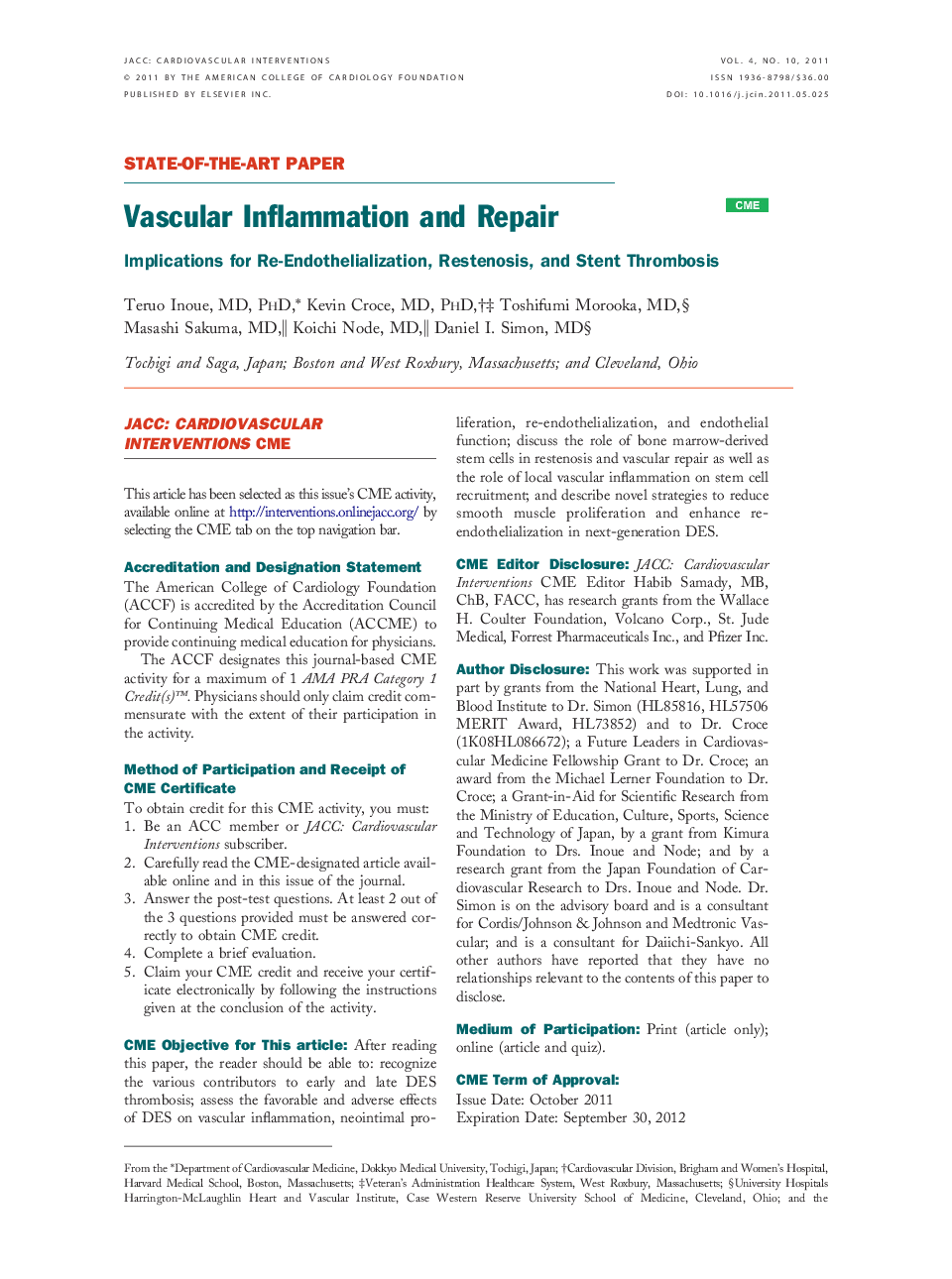| Article ID | Journal | Published Year | Pages | File Type |
|---|---|---|---|---|
| 2941316 | JACC: Cardiovascular Interventions | 2011 | 10 Pages |
The cellular and molecular processes that control vascular injury responses after percutaneous coronary intervention involve a complex interplay among vascular cells and progenitor cells that control arterial remodeling, neointimal proliferation, and re-endothelialization. Drug-eluting stents (DES) improve the efficacy of percutaneous coronary intervention by modulating vascular inflammation and preventing neointimal proliferation and restenosis. Although positive effects of DES reduce inflammation and restenosis, negative effects delay re-endothelialization and impair endothelial function. Delayed re-endothelialization and impaired endothelial function are linked to stent thrombosis and adverse clinical outcomes after DES use. Compared with bare-metal stents, DES also differentially modulate mobilization, homing, and differentiation of vascular progenitor cells involved in re-endothelialization and neointimal proliferation. The effects of DES on vascular inflammation and repair directly impact clinical outcomes with these devices and dictate requirements for extended-duration dual antiplatelet therapy.
